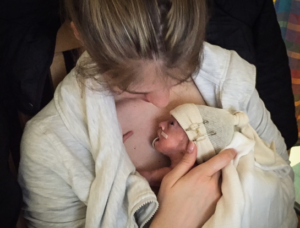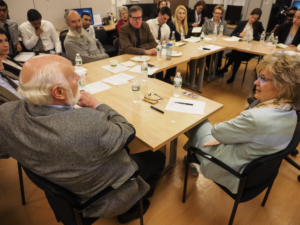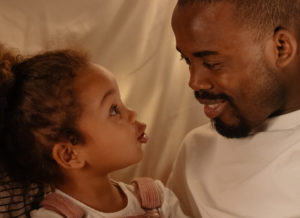Receive updates on research, collaborations, recent news and more.
The prestigious peer-reviewed scientific journal PLOS One has published our findings that Family Nurture Intervention (FNI) increases autonomic regulation in preterm infants and their mothers at 4-5 years post-intervention. Here you will find a Q&A with Dr. Martha G. Welch MD and Dr. Michael Myers PhD about these findings and what they mean for parents, babies, and families.
Times of crisis, as challenging and devastating as they are, can also reveal what truly matters. For most of us, 2020 was an incredibly difficult year, filled with fear, stress, and grief, but it also marked the first time many of us told our loved ones how much we value and love them; in their absence, we realized how vital human connection is to our health and well-being.
For more than 30 years, Reach Out and Read has educated pediatricians, family doctors, and nurses about early reading. We’re so excited about the far-reaching potential that our partnership with Reach Out and Read creates.
In early childhood development, we hear so much about what’s measurable—how often children are read to, and how many words they hear by age three—that reading can feel more like a task to check off a list, than a special opportunity to connect.
Listening starts at home, where we build the practice in our foundational relationships to foster lifelong health, well being, and harmony in every part of society.
Eye contact can establish connection, but it can also be a by-product of connection. When two people are emotionally connected, they love to look into each other’s eyes. In the NICU, we have observed that when a mother expresses deep emotions to her baby, the baby reciprocates by making eye contact, often for the first time.
- « Previous
- 1
- 2
- 3
- 4
- Next »










